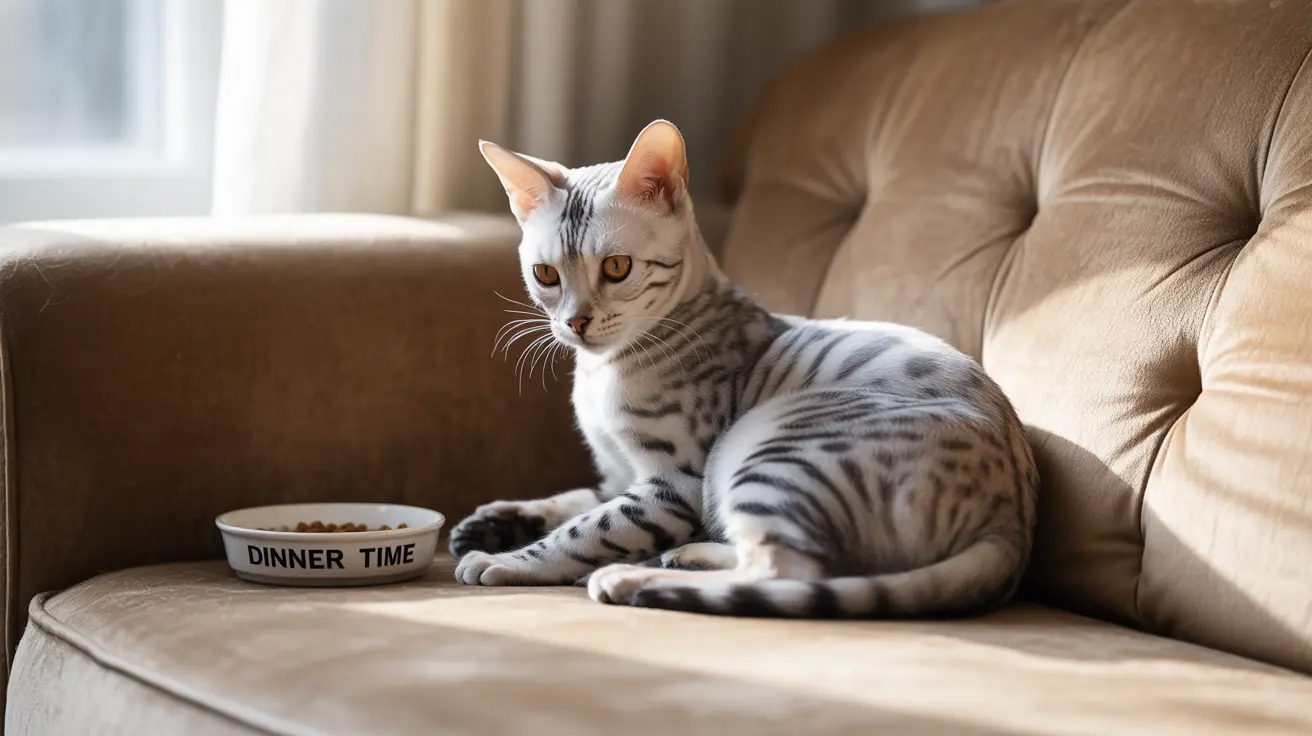Understanding Cat Stomach Gurgling
Cat stomach gurgling occurs when gas and fluids move through the digestive tract during normal digestion. These sounds are typically more noticeable after meals or when your cat is hungry. While some level of digestive noise is natural, the volume, frequency, and accompanying symptoms can help determine whether the gurgling is routine or requires medical attention.
Common Causes of Stomach Gurgling in Cats
Normal Digestive Processes
Most stomach gurgling in cats is attributed to regular digestive activity. As food moves through the intestines and is broken down, it's natural for the process to create some noise. This is especially common right after eating or when your cat is anticipating their next meal.
Dietary Factors
Several diet-related issues can increase stomach gurgling:
- Eating too quickly
- Recent changes in food
- Food allergies or sensitivities
- Consuming spoiled food
- Lactose intolerance
Medical Conditions
Sometimes, excessive stomach gurgling can indicate underlying health issues:
- Inflammatory bowel disease (IBD)
- Intestinal parasites
- Gastrointestinal infections
- Food allergies
- Digestive system disorders
When to Be Concerned About Cat Stomach Gurgling
While occasional gurgling is normal, certain signs warrant veterinary attention:
- Persistent or unusually loud stomach noises
- Decreased appetite or food refusal
- Vomiting or diarrhea
- Lethargy or behavioral changes
- Visible discomfort or bloating
- Weight loss
Prevention and Management Tips
Dietary Recommendations
Maintain optimal digestive health with these feeding practices:
- Feed small, frequent meals
- Use elevated food bowls to prevent air swallowing
- Transition to new foods gradually
- Provide fresh water at all times
- Consider probiotics (with veterinary approval)
Environmental Factors
Create a stress-free eating environment by:
- Establishing regular feeding times
- Providing quiet feeding areas
- Using separate feeding stations in multi-cat households
- Minimizing environmental stressors
Frequently Asked Questions
Why does my cat's stomach gurgle and is it normal?
Cat stomach gurgling is usually normal and occurs during digestion as food, fluids, and gas move through the intestines. However, excessive or unusual gurgling may indicate digestive issues that need attention.
When should I be worried about my cat's stomach gurgling?
Be concerned if stomach gurgling is accompanied by symptoms like vomiting, diarrhea, decreased appetite, lethargy, or visible discomfort. These combinations of symptoms warrant a veterinary consultation.
Can food allergies cause stomach gurgling in cats?
Yes, food allergies can cause increased stomach gurgling along with other symptoms like vomiting, diarrhea, and skin irritation. Common allergens include certain proteins and dairy products.
How can I help reduce my cat's stomach gurgling through diet and lifestyle?
Feed smaller, more frequent meals, ensure proper feeding posture, transition food changes gradually, and maintain a consistent feeding schedule. Also, provide fresh water and consider probiotics if recommended by your vet.
Could stress or parasites be making my cat's stomach gurgle more than usual?
Yes, both stress and parasites can increase stomach gurgling. Stress affects digestive motility, while parasites can irritate the digestive tract. Both conditions may require specific treatment approaches.
Conclusion
While cat stomach gurgling is often normal, being attentive to changes in frequency, volume, and accompanying symptoms helps ensure your cat's digestive health. When in doubt, consult with your veterinarian, especially if the gurgling is accompanied by concerning symptoms or behavioral changes.






